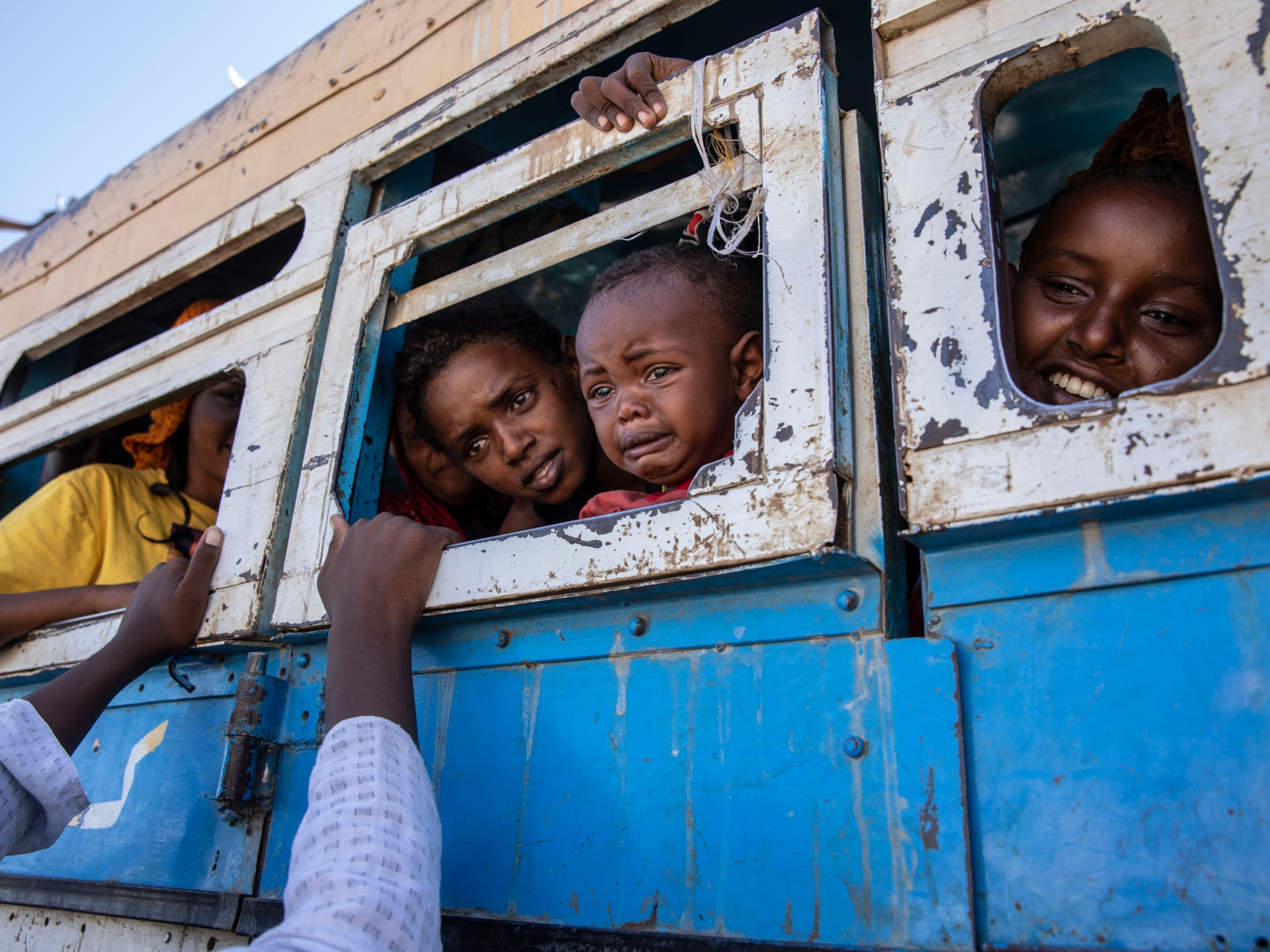The African Union invited the rival parties to negotiations in South Africa aimed at ending a two-year conflict.
Ethiopia’s government and rebels from the country’s Tigray region say they have accepted an invitation by the African Union to participate in peace talks in South Africa.
The African Union (AU) invited the rival parties to negotiations aimed at ending a two-year conflict that has left thousands of civilians dead and millions uprooted.
Both sides had previously said they were prepared to participate in AU-mediated talks but intense fighting has continued to rage across Tigray, a northern region bordering Eritrea.
The region of six million people has been facing desperate shortages of food, fuel, medicines and other emergency supplies, with the United Nations World Food Programme warning of rising malnutrition even before the latest fighting halted aid deliveries.
The talks headed by AU chair Moussa Faki Mahamat and slated for this weekend will be the first formal negotiations between the two sides since the war broke out in November 2020.
The Ethiopian government “has accepted this invitation which is in line with our principled position regarding the peaceful resolution of the conflict and the need to have talks without preconditions,” Redwan Hussein, the national security adviser to Prime Minister Abiy Ahmed, said on Twitter on Wednesday.
In a statement, the leaders of rebel-held Tigray said they were “ready” to send negotiators, but raised questions about invited participants, observers and guarantors.
“Considering we were not consulted prior to the issuance of this invitation, we need clarification to some of the following issues to establish an auspicious start for the peace talks,” read a statement signed by Tigray People’s Liberation Front (TPLF) leader Debretsion Gebremichael.
Abiy’s government accuses the TPLF, which dominated Ethiopia’s ruling coalition until Abiy came to power in 2018, of trying to reassert Tigrayan dominance over Africa’s second-most populous country.
The TPLF accuses Abiy of over-centralising power and oppressing Tigrayans. Both dismiss each other’s accusations.
A major resurgence of fighting in August dashed a five-month truce and halted aid into Tigray, where a shortage of food, fuel, cash and medicine has caused a humanitarian crisis.
The latest surge has also drawn Eritrean troops back to the battlefield in support of Ethiopia’s federal and regional forces, which are confronting rebels from the TPLF on multiple fronts.
The deepening conflict has raised international alarm, with the United States this week announcing that its special envoy to the region, Mike Hammer, would be making his second visit to Ethiopia in as many months to seek a halt to the fighting.
The visit, which will include meetings with federal government and AU officials in Kenya, South Africa and Ethiopia, comes on the heels of an 11-day trip by Hammer to Ethiopia last month.
A diplomatic source told AFP news agency that the AU talks would be mediated by “a troika of negotiators” including the bloc’s Horn of Africa envoy Olusegun Obasanjo and former Kenyan President Uhuru Kenyatta.
Another diplomatic source said South Africa’s former Deputy President Phumzile Mlambo-Ngcuka would serve as the third negotiator.
The warring sides were previously at odds over who should mediate negotiations, with Abiy’s government pushing for Obasanjo and the TPLF wanting Kenyatta to broker dialogue.
They have also sparred over the restoration of basic services such as electricity, communications and banking in Tigray – a key precondition for dialogue, according to the TPLF.
